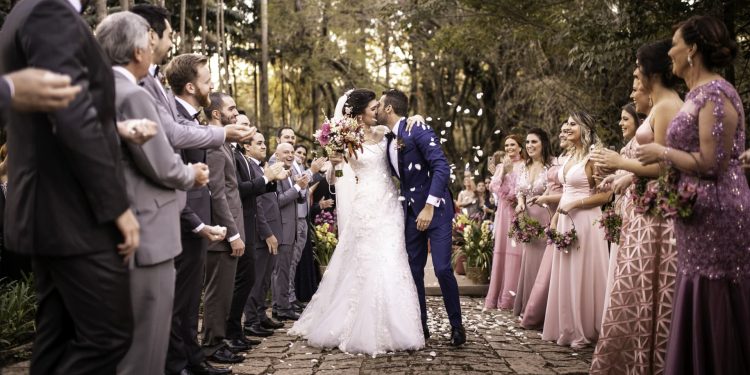America’s favorite romantic comedies include “Pretty Woman,” “Sleepless in Seattle” and “Sixteen Candles,” according to a series of 2023 YouGov polls.
In these and many similar romantic comedies, the plot is quite simple: the female leads the race after a man, they end up together, often after a series of wacky encounters. The end. The trope echoes a long-held belief about male-female dynamics.
“There’s sort of a stereotype that women want or need relationships more than men,” says Justin Lehmiller, a senior fellow at the Kinsey Institute, “and that women would be more likely to get into a relationship more quickly.”
But a recent study from DatingNews.com and the Kinsey Institute of 2,000 American singles refutes that claim.
More than a quarter of men, 28.6%, would speed up their move into a relationship and 18.8% would marry sooner, according to the study. This compares to the 18.8% of women who would move in more quickly and the 13.7% who would marry earlier.
According to Kinsey’s findings, their motivator is financial: more men would accelerate these steps to save money.
And that should come as no surprise, given the current economic climate, with job openings and hiring slowing and tariffs driving up prices. But experts say there’s more to it than that.
There is something of a stereotype that women want or need relationships more than men.
Justin Lehmiller
Principal Investigator, Kinsey Institute
For heterosexual men in particular, “romantic relationships really become their primary source of social and emotional support,” Lehmiller says. “And so when men don’t have that in their lives, we find that their level of psychological well-being is lower.”
It’s a trend that Geoff MacDonald, an expert on singleness and professor of psychology at the University of Toronto, knows well. MacDonald’s MacLab focuses on the well-being of single people and has found that women are more likely to be happily single than men.
“Women are simply better at getting that kind of support through their friendships and family connections,” MacDonald says. “Men tend to struggle with this alone.”
This could be due to cultural pressure, Lehmiller says.
Traditional notions of masculinity “limit when and how men can express their emotions,” he says. “So they don’t tend to get as close to their male friends or have other people in their lives that they have close intimate relationships with.”
Romantic relationships help men meet these needs.
Researchers are not the only ones to note the eagerness of men to form a couple. Kyle Scheinkman has worked at relationship coaching company Relationship Hero since 2018, first as a client coach and now as Director of Coaching.
The company’s hundred coaches mainly offer services in the context of romantic relationships, from relationship strengthening to help in finding a partner.
“Generally speaking, men are more likely to sign up for coaching,” he says. “They are more likely to complete more sessions and spend more on coaching in the long term.”
Do you want to earn more and grow your money? Save 30% with this pack that increases income of our best courses.
More, sign up for the CNBC Make It newsletter get tips and tricks for success at work, with money and in life, and ask to join our exclusive community on LinkedIn to connect with experts and peers.









